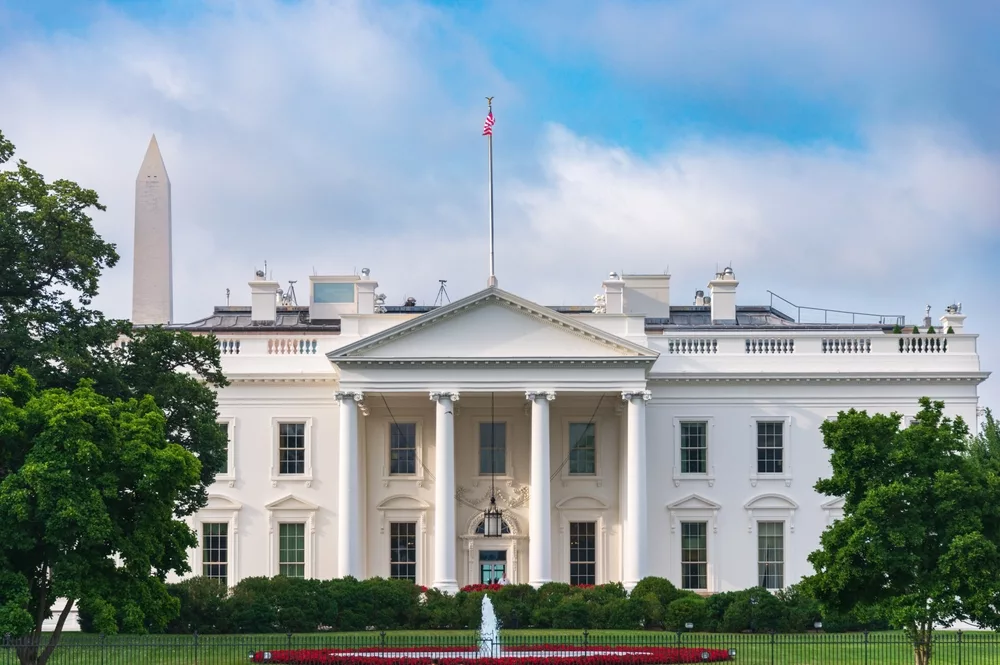
- Many companies have been exploring AI-driven solutions to enhance their workflow efficiency and overcome the complexities involved in managing the movement of goods from companies to the end consumer.
- Tools can be used to facilitate better collaboration between supply chain partners by allowing demand forecast data to be shared with suppliers. Such capabilities help businesses optimize production schedules and delivery plans to create a harmonized supply chain system.
- AI has the potential to revolutionize the supply chain and logistics sectors by improving efficiency and reducing operational costs.
- A version of this article first appeared on CoinTelegraph. Read more Crypto Council explainers.
The use of artificial intelligence in supply chains
Numerous industries are embracing the use of AI because of the technology’s transformative potential.
In the context of supply chains and logistics, many companies have been exploring AI-driven solutions to enhance their workflow efficiency and overcome the complexities involved in managing the movement of goods from companies to the end consumer.
As highlighted in a 2021 report by Gartner, a research and data insights firm, 50% of supply chain organizations are projected to invest in AI and analytics applications through 2024.
Looking at how the trend started, the need for artificial intelligence in supply chains rose sharply in 2020 following the emergence of the COVID-19 pandemic. The onset of the epidemic brought unprecedented challenges to supply chain organizations worldwide after the global health crisis disrupted economies, halted manufacturing, and led to erratic consumer behavior.
The fast-evolving situation left many supply chain operators grappling with an unprecedented level of uncertainty as long-standing conventional supply chain management models proved insufficient to cope with the scale and complexity of the disruptions.
The predicament compelled supply chain organizations across industries to seek more innovative tools and technologies. Consequently, a substantial number of them turned to AI solutions due to the advantages of the technology.
Enhancing demand forecasting with AI predictive analytics solutions
Demand forecasting enhances predictability and resource planning, which, in turn, aids supply chain and logistics organizations in maintaining the delicate balance between consumer demand and supply.
AI technology excels at forecasting demand by extracting insights from extensive repositories of data. Some big data and artificial neural network AI projection tools are designed to apply data science models and derive pertinent information from numerous sources that include past sales records, customer transactions, social media mentions and prevailing economic indicators.
Besides this, the tools can be used to facilitate better collaboration between supply chain partners by allowing demand forecast data to be shared with suppliers. Such capabilities help businesses optimize production schedules and delivery plans to create a harmonized supply chain system. This aspect benefits supply chain organizations by enabling them to respond swiftly to demand fluctuations.
The higher level of predictability also allows businesses to minimize stockouts, optimize inventory levels, and reduce excess inventory, leading to better inventory management, higher cost savings and better customer satisfaction.
The use of AI in warehouse automation
AI robots are increasingly being used in supply chain and logistics warehouses to automate a range of tasks, including picking, packing and replenishing.
Autonomous mobile robots (AMRs) are becoming a more popular tool used in supply chain warehouses around the world. This is because they are able to operate independently with little human guidance or intervention. By incorporating AI and advanced technologies, such as machine learning, computer vision and sensor fusion, these robots are able to execute intricate tasks effectively.
Moreover, AMRs have the ability to adjust to changing warehouse configurations and operational demands. In environments where AI robots can work collaboratively alongside human workers, the synergy allows humans to focus on more complex tasks that require human creativity and problem-solving skills, while the robots take care of the repetitive and mundane tasks.
Such dynamic partnerships have the potential to maximize workforce productivity and improve the overall efficiency of warehouse operations in the supply chain and logistics sectors.
AI for quality control
The emergence of AI-enabled sensors and analytics tools has revolutionized quality control in supply chains and logistics firms, as AI technologies can monitor product quality and detect defects in real time, ensuring that products meet the highest standards before they reach customers.
Some sensors are, for example, able to detect scratches, cracks and dents in products, while others are programmed to check for incorrect markings or missing components. Some predictive maintenance AI models are also used to evaluate product usage and come up with recommended maintenance schedules based on a wide range of usage trends.
In transportation, AI-enabled sensors can be employed to monitor the condition of products. For instance, the AI in Internet-of-Things (IoT) sensors can be used to detect temperature and humidity changes to ensure that perishable goods are kept at the correct temperature.
By incorporating AI-enabled sensors throughout supply chain and logistics processes, businesses can ensure that only high-quality products reach their customers. This not only enhances customer satisfaction but also safeguards brands’ reputations.

AI can be used to streamline procurement processes
AI has the potential to be a game-changer in streamlining procurement processes by automating many of the tedious tasks. For example, AI can be used to automate invoice processing by helping companies validate invoice data.
Furthermore, AI can also be used to alert supply managers about pending invoices to ensure that they are processed in a timely manner. Beyond this, AI capabilities can be extended to create purchase orders and monitor their progress. This level of automation is likely to result in a significant reduction in the time and effort expended on these tasks.
In addition to invoice-related functions, AI can be programmed to analyze past data and detect patterns and trends that indicate potential risks and issues in procurement processes. For instance, AI could be used to identify supplier performance issues or compliance violations. Such an approach would help to avert problematic situations preemptively and enhance process optimization. Some companies are already leveraging the power of AI and blockchain technology to create secure and more transparent distributed database procurement systems.
AI applications in supply chains and logistics for a better customer experience
AI has the potential to transform customer service in the supply chain and logistics industries in many ways.
One of them is enabling real-time tracking of orders. This capability can help customers stay informed about the status and location of their shipments, providing them with transparency and peace of mind.
Additionally, natural language processing (NLP)-based AI solutions can be used to automate customer service tasks, reducing the burden on human representatives. For example, AI can be deployed to answer frequently asked questions (FAQs), freeing up human agents to focus on more complex tasks, especially those requiring human input or expertise.
These capabilities not only improve the response time to customer inquiries but also lead to greater customer contentment.
AI in transportation management and route optimization
In the field of supply chain and logistics, AI can be employed to analyze data and identify patterns to determine convenient transport routes.
AI solutions can utilize real-time data, such as prevailing traffic and weather conditions, to identify the most efficient routes for deliveries. Such AI capabilities can be harnessed to mitigate inconveniences caused by factors such as traffic congestion, particularly during peak traffic times, thereby reducing delivery times.
AI is also expected to impact the industry in other ways. For example, industry analysts predict that the use of autonomous trucks that rely on the technology will increase in the near future. The transformation is expected to occur due to a confluence of factors.
One factor is that the technology behind the vehicles is advancing rapidly, while there is increased demand for freight transportation and a shortage of skilled truck drivers. According to pundits, the technology will become an attractive option for businesses as it improves and becomes more reliable.
Of course, it is impossible to pinpoint precisely when autonomous trucks will become mainstream. However, extensive safety standards would have to be met before mass adoption.
The future of AI in supply chains and logistics
AI has the potential to revolutionize the supply chain and logistics sectors by improving efficiency and reducing operational costs.
The use of AI in supply chains and logistics has the potential to drastically alter how items are distributed, handled and transported in the future. Automation, predictive analytics and other AI-based technologies are positioned to optimize a number of supply chain-related processes.
These developments may result in improved demand forecasting, real-time shipment tracking and vehicle route optimization, in addition to improved inventory management.
Furthermore, AI can lower operating expenses, identify inefficiencies, and enhance overall customer responsiveness. AI’s integration into supply chain and logistics operations promises to improve efficiency, decrease waste, and better respond to the changing demands of the modern market as it continues to develop.

























